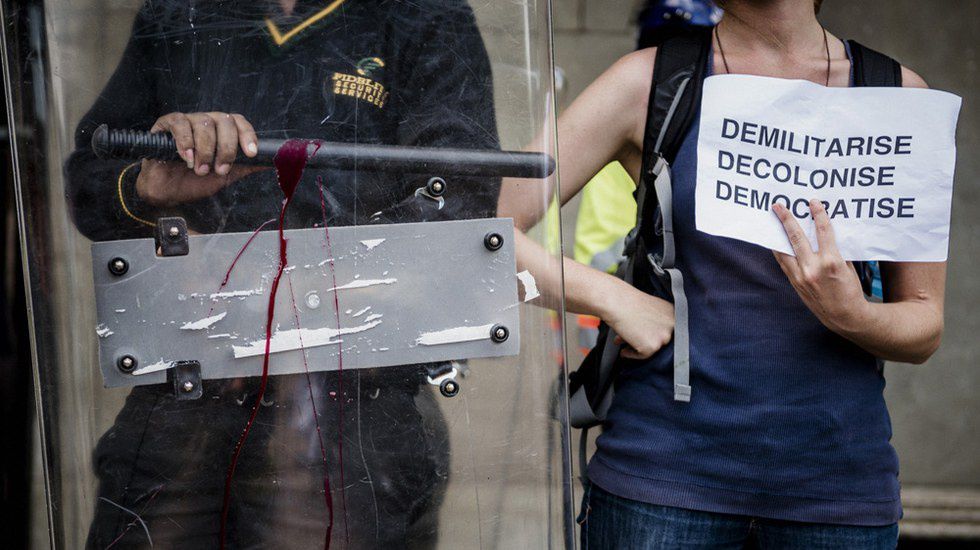A grassroots movement lead by young and frustrated university students grew roots in South Africa, in October of 2015. The movement, #FeesMustFall, was initially a response to the University of Witwatersrand, commonly known as Wits University, decision to increase student fees by 10.5 percent. Now the movement is using this incident as a platform to demand equality within the educational system. Only 5 percent of South African families can afford university fees; as a result, many students end up in tremendous debt. Students are already required to pay a minimum initial payment equal to 50 percent of their total university fees. So, when Wits University announced the fee increase the students unified and met it with strong opposition. As a result, Wits University conceded and decided not to raise fees. However, this did not quench the movements thirst for equality, the students responded with a demand for free. Wits University decided enough was enough and had guards forcibly evict students. Consequently, a population of homeless students, indebted to their education had to find a way to fight for equality but continue to receive their education. Al Jazeera quotes Tshepiso Modupe, a student at University of the Witwatersrand involved in the movement, saying, "In December, we ended up living in classrooms and lecture rooms and things like that. If you want to take a bath, there is nowhere to bathe, so you borrow a student card and go to the swimming pool, and you swim".
With South Africa's history of colonization and apartheid, the #FeesMustFall movement confronts a wider dynamic than just class conflicts, it confronts race conflicts as well. Most of the students who can not afford to pay university fees are black. Surprisingly, the movements most prominent opponent is the Higher Education Minister Blade Nzimade, a black man. Minister Nzimade has increased the instability of the National Students’ Financial Aid Scheme (NSFAS) and is pushing for tougher resistance by universities to protest. Though students in the #FeesMustFallMovement have been peaceful, they have been confronted with militarized violence.
The problem these students are facing is bigger than student fees. It is the feeling of having a ceiling above your ladder to success. In various articles, students have used what many would believe to be an antiquated word: decolonize. As students express the need to decolonize their society and their minds in modern times this may seem like a bizarre thought. However when the current state of society is a direct result of colonization, it is not hard to see why the descendants of the colonizers are still benefiting from the system made specifically to benefit them. Another example of a similar society is the United States, which was once a colony. There is a strong paralleled history between the United States and South Africa. These similarities stain the countries interior with the blood of the slaughtered, the later's apartheid and the former's segregation are strikingly alike in the way they systematically oppressed a group essential to the success of that same system. So, if South Africa needs to decolonize, does the U.S. need to decolonize too?
On the topic of higher education affordability, the two are similar again. Though there is no formal statistic of how many Americans can not afford higher education, other numbers show that the number would amass a majority of the population. In the U.S., the average income of a household is $51,939, according to the U.S. Census Bureau, yet the average cost to attend a private college is $32,405. You must also take into account that tuition is only one of the many fees college students can incur; there are fees for housing insurance, meal plans, and travel. Maybe the U.S. could use its own #FeesMustFall movement. President Obama already divulged a plan for free community college; however it was met with strong opposition in part due to a fear of socialism. Will the American people begin to unify under the fight for the equality in education similar to that seen in South Africa?
Currently, the #FeesMustFall movement is becoming divided by ideological and political differences. The movement can be salvaged through global participation. The universality of the need for free education isn't apparent because we neglect the fact that the right to education is a global issue. This unalienable right is becoming blockaded by dollar signs and elections. Let's decolonize our education system by removing this blockade while simultaneously creating a connection among oppressed people around the world.






















